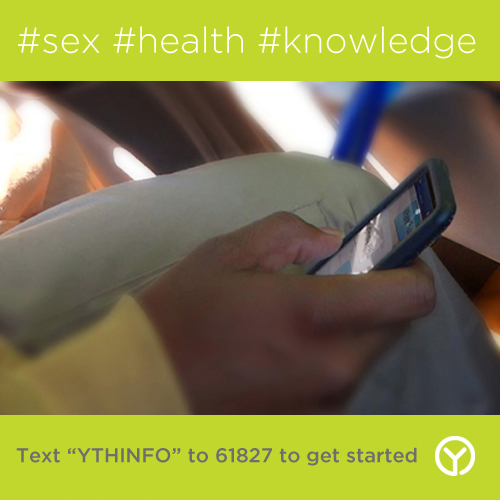|
Find the NCC on Facebook!

The National Chlamydia Coalition is now on Facebook. To follow the NCC, simply visit our page and click the "like" button. Don't forget to share it with your friends and colleagues!
| | |
|
|
|
Dear Colleague,
Welcome to NCC News. This online newsletter was created to keep you up-to-date on all things chlamydia and related areas of interest. We hope you will find it useful and informative. Please feel free to share this with your colleagues who also may find it of use. |
 |
Updated STD Treatment Guidelines Released
|
The Centers for Disease Control and Prevention (CDC) released the 2015 STD Treatment Guidelines, updating their recommendations for  treating persons who have or are at risk for sexually transmitted diseases (STDs). The last full update to the CDC STD Treatment Guidelines was in 2010. A number of changes were made to the guidelines, which include the following: treating persons who have or are at risk for sexually transmitted diseases (STDs). The last full update to the CDC STD Treatment Guidelines was in 2010. A number of changes were made to the guidelines, which include the following:
- Updated treatment for chlamydial infections during pregnancy
- Screening recommendations for gonorrhea and chlamydia
- Alternative treatment regimens for gonorrhea
- Use of nucleic acid amplification tests for the diagnosis of Trichomonas vaginalis
- Updated HPV vaccine recommendations and counseling messages
- Screening recommendations, including Hepatitis C, for men who have sex with men
- Information on the clinical management of transgender individuals
|
 | Misdiagnoses of UTIs, STDs Occur Often in Women in Emergency Departments | |
A new study from Case Western Reserve University found that nearly 50% of the time, UTIs and STDs are misdiagnosed in emergency  departments. The study examined records of 264 women, aged 18 to 65 years, who were seen in the MetroHealth Medical Center's emergency department. STDs, like chlamydia and gonorrhea, were missed in 37% of the women, many of whom were wrongly diagnosed with urinary tract infections. According to researchers, 64% of the patients with a missed STD were diagnosed as having a UTI instead. The results indicate that emergency department diagnostic testing strategies for both UTIs and STDs need to be reevaluated. departments. The study examined records of 264 women, aged 18 to 65 years, who were seen in the MetroHealth Medical Center's emergency department. STDs, like chlamydia and gonorrhea, were missed in 37% of the women, many of whom were wrongly diagnosed with urinary tract infections. According to researchers, 64% of the patients with a missed STD were diagnosed as having a UTI instead. The results indicate that emergency department diagnostic testing strategies for both UTIs and STDs need to be reevaluated.
|
 |
Sexual Health in America: Improving Patient Care and Public Health
| |
A Viewpoint was published in the Journal of the American Medical Association (JAMA). Sexual Health in America: Improving Patient Care and Public Health, written by former Surgeon General David Satcher, MD, PhD, Edward W. Hook III, MD, and Eli Coleman, PhD, says we can move toward solutions to sexual health challenges by embracing a comprehensive sexual health framework that looks toward the promotion of health and wellness rather than a narrow fixation on diseases. The new sexual health framework includes: an emphasis on wellness; focus on positive, respectful relationships; acknowledgement of the impact of sexual health on overall health; and an integrated approach to prevention.
|
 |
Researchers Develop Vaccine Against Chlamydia in Mice
|
According to new research published in Science magazine, a chlamydia vaccine may be on the horizon. An international research team announced a new vaccine against chlamydia in mice. Mice that  were given the vaccine very quickly eliminated chlamydia and were even faster at completely clearing it than the animals that had developed natural immunity after a previous infection. This study could lead to further research in humans and potentially a vaccine that could help reduce the spread of chlamydia. Researchers have licensed the technology to biotech startup Selecta Biosciences. were given the vaccine very quickly eliminated chlamydia and were even faster at completely clearing it than the animals that had developed natural immunity after a previous infection. This study could lead to further research in humans and potentially a vaccine that could help reduce the spread of chlamydia. Researchers have licensed the technology to biotech startup Selecta Biosciences.
|
 |
Study Finds Decreased Rates of Cervical Lesions in Young Women
|
According to a new study, rates of abnormal cervical changes that can lead to cancer (high-grade cervical lesions) have decreased in young women since the introduction of the HPV vaccine, but the trend may be due in part to changes in cervical cancer screening recommendations.During the 5-year study period, incidence of  high-grade cervical lesions among women aged 18-20 was significantly reduced in all four states included in the study. In California, incidence was reduced from 94 per 100,000 women to 5 per 100,000 women. High-grade cervical lesion incidence also fell for women aged 21-29, though to a lesser extent. Introduced in 2012, the new cervical screening guidelines recommend that women under the age of 21 no longer be tested. Since high-grade cervical lesions can only be identified through screening, the researchers believe reduced screening as a result of guideline changes may have contributed, along with the HPV vaccine, to a fall in rates of these lesions. high-grade cervical lesions among women aged 18-20 was significantly reduced in all four states included in the study. In California, incidence was reduced from 94 per 100,000 women to 5 per 100,000 women. High-grade cervical lesion incidence also fell for women aged 21-29, though to a lesser extent. Introduced in 2012, the new cervical screening guidelines recommend that women under the age of 21 no longer be tested. Since high-grade cervical lesions can only be identified through screening, the researchers believe reduced screening as a result of guideline changes may have contributed, along with the HPV vaccine, to a fall in rates of these lesions.
|
 |
Color Changing Condom to Detect STDs
|
Students from England's Isaac Newton Academy created a concept for  a smart condom that would change color when exposed to common STDs. Antibodies on the condom would interact with the antigens of STDs, causing the condom to change colors depending on the disease. Although the condom is still at the concept stage, a condom manufacturer believes it can make the students' idea a reality. a smart condom that would change color when exposed to common STDs. Antibodies on the condom would interact with the antigens of STDs, causing the condom to change colors depending on the disease. Although the condom is still at the concept stage, a condom manufacturer believes it can make the students' idea a reality.
|
 |
New Text-Based Campaign for Youth
|
 A new text-based campaign, YTHINFO, sends underserved youth weekly sexual health info texts to their personal cell phone. It makes accessing sexual health information easy, simple, direct, and individualized. YTHINFO also has a built-in clinic finder, where youth can text their zip code to find the nearest clinics. A new text-based campaign, YTHINFO, sends underserved youth weekly sexual health info texts to their personal cell phone. It makes accessing sexual health information easy, simple, direct, and individualized. YTHINFO also has a built-in clinic finder, where youth can text their zip code to find the nearest clinics.
|
 |
Planned Parenthood Launches STD Testing App
|
Planned Parenthood launched a smart phone app called Planned  Parenthood Direct that allows people in California to order testing and treatment for chlamydia and gonorrhea. Users receive a test kit through the mail. They send a urine sample to a lab, and receive the results through the app. If they test positive, they're either sent a prescription, or told to visit a local clinic. The app itself is free, but the test kit costs $149. Parenthood Direct that allows people in California to order testing and treatment for chlamydia and gonorrhea. Users receive a test kit through the mail. They send a urine sample to a lab, and receive the results through the app. If they test positive, they're either sent a prescription, or told to visit a local clinic. The app itself is free, but the test kit costs $149.
|
|
|
|
|